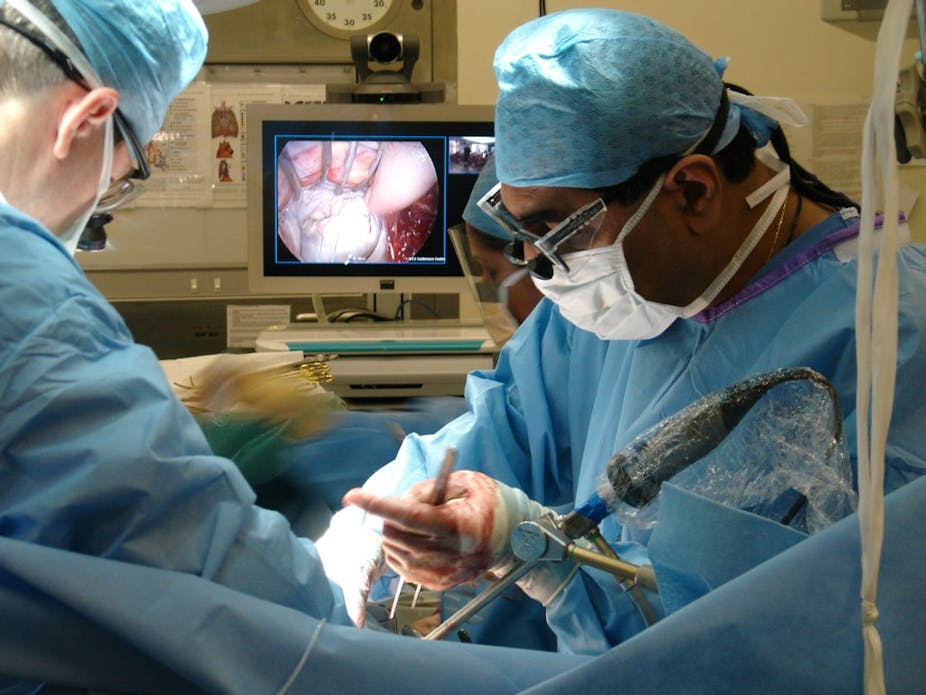Whether it’s keeping us safe, teaching us to add up, looking after children at risk or helping delinquents mend their ways - police officers, school teachers, social workers and probation officers affect all our lives. Astonishingly though, only now are these professions building themselves national institutions designed to raise their standards.
In stark contrast, the Royal College of Surgeons, formed and funded by practitioners, has been working to improve surgery for 200 years. The lack of organisation like this in the crime and justice sector, for example, is a glaring gap that is only now being filled.
In 2008, prompted by the very different backgrounds of professionals working together to tackle violence in Cardiff, I proposed a national College of Policing. It seemed to me that a headquarters for the police that would perform a similar function to the Royal College of Surgeons could do much the same for us all in that service. Five years later, it has happened. Theresa May, the Home Secretary, took up the idea and the new college was formed, led by the former Hampshire chief constable, Alex Marshall.
In teaching, the impetus was similar. Conservative MP Charlotte Leslie, a member of the House of Commons Education Committee, whose father is a surgeon, couldn’t believe that there was no national institution for teachers. “Despite the vital importance of teaching,” she wrote, “teachers do not enjoy the same status as other professions”. A recommendation for one duly appeared in her committee’s 2012 report.
A group of head teachers was thinking the same way. A commission to take this idea forward was formed by the Prince’s Teaching Institute. There has been almost total support from teachers and from teachers’ unions. The Education Secretary, Michael Gove also backs the idea. “There is growing consensus that teachers should emulate other professions … exemplifying and defining best practice in the teaching profession,” he said in April.
Raising standards depends in large part on the quality of expertise and practical knowledge which permeates a profession and the service it provides. The medical Royal Colleges and Engineering Institutions have promoted this know-how for centuries, pumping out evidence on what works and making sure practitioners know about it.
The absence of this organised drive towards ever higher performance in offender rehabilitation led me to propose a new institution for probation. Here, provision was particularly scarce. No national college, no probation centres in universities to create new knowledge and no organised funds for research. To help put this right, with the help of the Howard League for Penal Reform my pamphlet Professionalising the Probation Service includes proposals for a new HQ for the profession and for dedicated research arrangements.
Of course, rehabilitation is rather different from the NHS. The aim to rehabilitate is interlaced with the aim to punish. But even so, offending, prisons and the courts are all hugely expensive, and with more knowledge these heavy burdens on tax payers can be reduced. Here again, progress seems likely. Lord McNally, the justice minister, wrote to me, “I hope and intend that one of the outcomes of our reforms is a greater professional status for probation, perhaps overseen by a Chartered Institute of Probation”.
The College of Social Work was launched just last year but is already showing resolve and purpose. Responding to the serious case review of the death of Keanu Williams, the Birmingham toddler found with 37 injuries including a fractured skull, chairwoman Jo Cleary said: “This report sadly demonstrates that there is much more to be done to make sure every vulnerable child has the support and protection they need. The whole profession must learn from it and The College of Social Work is committed to playing its part in leading change.” Children’s Minister Tim Loughton said: “Reforming social work is one of this government’s top priorities. The college is absolutely key in making these reforms work.”
As well as advancing themselves, the professions have much to learn from each other. Some, like medicine, are particularly good at innovation and research, exemplified by clinical trials of medicines and surgical procedures to test out which ones work and which don’t. But leadership training is far stronger in teaching and the police service than it is in medicine. This led me to organise the professions summits.
There is an important trend in all this which has yet to be recognised. It is concerned with public good. These new institutions are not concerned with terms and conditions or any other trades union functions. The corporate instinct of all professions to improve the services they provide is being expressed as never before. Since the impetus is coming from professionals, government and the charity sector alike, this is a real Big Society move. It is one that needs to be nurtured.

